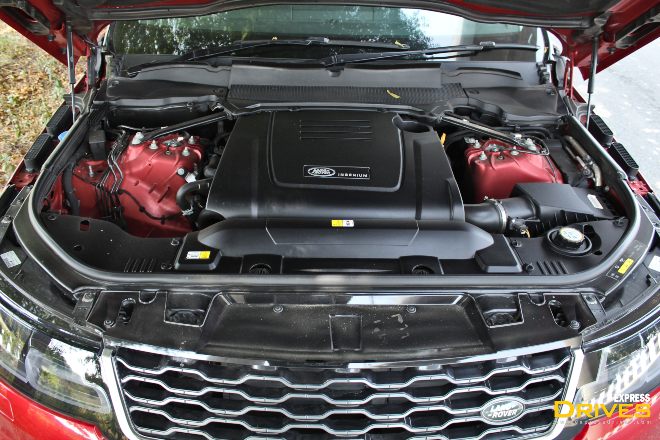The Range Rover Sport is known for its luxurious design, powerful engines, and off-road capabilities. This article explores the different engines available for the Range Rover Sport Engine, their features, performance, and common issues. We’ll keep it simple and easy to understand.
1. Overview of the Range Rover Sport Engine
The Range Rover Sport offers a range of engine options designed to cater to different driving needs, from everyday city commuting to rugged off-road adventures. These engines combine performance, efficiency, and luxury to provide a versatile driving experience. The available engines include petrol, diesel, and hybrid options, each offering distinct advantages.
2. Types of Engines Available
2.1 Petrol Engines
The petrol engines in the Range Rover engines are known for their smooth performance and quick acceleration. They are ideal for those who prioritize power and speed over fuel economy.
- 2.0L P300: This 2.0-liter four-cylinder engine produces 300 horsepower, providing a good balance of power and efficiency. It’s suitable for city driving and moderate off-road conditions.
- 3.0L P400: This 3.0-liter six-cylinder engine with mild-hybrid technology produces 400 horsepower. It delivers more power, smooth acceleration, and slightly better fuel efficiency compared to traditional engines.
- 5.0L V8 Supercharged (P525 and P575): The flagship engine option for performance enthusiasts. Producing up to 575 horsepower, this engine delivers thrilling acceleration, making it perfect for those who crave speed.
2.2 Diesel Engines
Diesel engines are popular for their excellent fuel economy and torque, making them ideal for long-distance travel and towing.
- 2.0L SD4: This engine offers 240 horsepower, providing adequate power for daily driving with better fuel efficiency.
- 3.0L SDV6: This six-cylinder engine provides 306 horsepower and is known for its durability and strong towing capacity.
- 4.4L SDV8: The most powerful diesel engine option, offering 339 horsepower. It’s perfect for those who need high torque for towing heavy loads.
2.3 Hybrid Engines
The hybrid engines combine a traditional petrol engine with an electric motor, offering a balance between performance and eco-friendliness.
- P400e PHEV (Plug-in Hybrid Electric Vehicle): This hybrid engine combines a 2.0-liter petrol engine with an electric motor, producing a combined 404 horsepower. It offers up to 25 miles of electric-only range, making it ideal for short city trips.
3. Key Features of Range Rover Sport Engines
3.1 Performance
Range Rover Sport engines are designed to deliver impressive performance, whether you’re on the highway or tackling challenging terrains. The supercharged V8 engines, in particular, provide sports car-like acceleration, while the diesel engines offer excellent torque for off-road adventures.
3.2 Fuel Efficiency
While Range Rover Sport is a performance-focused SUV, its engines are relatively fuel-efficient compared to competitors in the luxury SUV segment. The hybrid option, P400e, provides the best fuel economy, especially for city driving, where electric mode can be utilized.
3.3 Towing Capacity
The powerful diesel engines, especially the 4.4L SDV8, offer excellent towing capacity, making the Range Rover Sport a great choice for those who frequently tow trailers, boats, or caravans.
4. Common Issues with Range Rover Sport Engines
Although the Range Rover Sport engines are known for their performance, there are a few common issues owners might face:
4.1 Timing Chain Problems
Some petrol engines, particularly the older 3.0L V6 models, have been reported to experience timing chain issues. This can lead to engine noise and, if not addressed, serious engine damage.
4.2 Turbocharger Failure
Turbochargers in diesel engines, especially in high-mileage vehicles, may fail over time. Symptoms include loss of power and excessive smoke from the exhaust.
4.3 Oil Leaks
Oil leaks are a common issue in both petrol and diesel engines. Regular maintenance and inspections can help detect and fix these leaks early, preventing further engine damage.
4.4 EGR Valve Problems
The Exhaust Gas Recirculation (EGR) valve in diesel engines can get clogged over time, leading to reduced engine performance and increased emissions. Cleaning or replacing the EGR valve can resolve this issue.
5. Maintenance Tips for Range Rover Sport Engines
Proper maintenance is crucial for ensuring the longevity and performance of your Range Rover Sport engine. Here are some tips:
5.1 Regular Oil Changes
Changing the engine oil at regular intervals helps maintain engine performance and prevent wear and tear. Always use the recommended oil type for your specific engine.
5.2 Keep an Eye on Warning Lights
Pay attention to warning lights on the dashboard. The engine light, in particular, should never be ignored, as it can indicate various issues, from minor faults to serious engine problems.
5.3 Use Quality Fuel
Using high-quality fuel can improve engine performance and efficiency. Avoid low-grade fuels, which can cause engine knocking and long-term damage.
5.4 Regular Service Checks
Regular servicing by a qualified technician can help catch potential problems early. Always follow the manufacturer’s service schedule to keep your engine in top shape
The Range Rover Sport offers a variety of engines that cater to different driving needs, whether you prefer the thrill of a supercharged V8 or the efficiency of a hybrid. Understanding the strengths and weaknesses of each engine type can help you choose the best option for your driving style. Proper maintenance and timely repairs are essential to keep your engine running smoothly, ensuring you enjoy the full performance and luxury that the Range Rover Sport has to offer.




